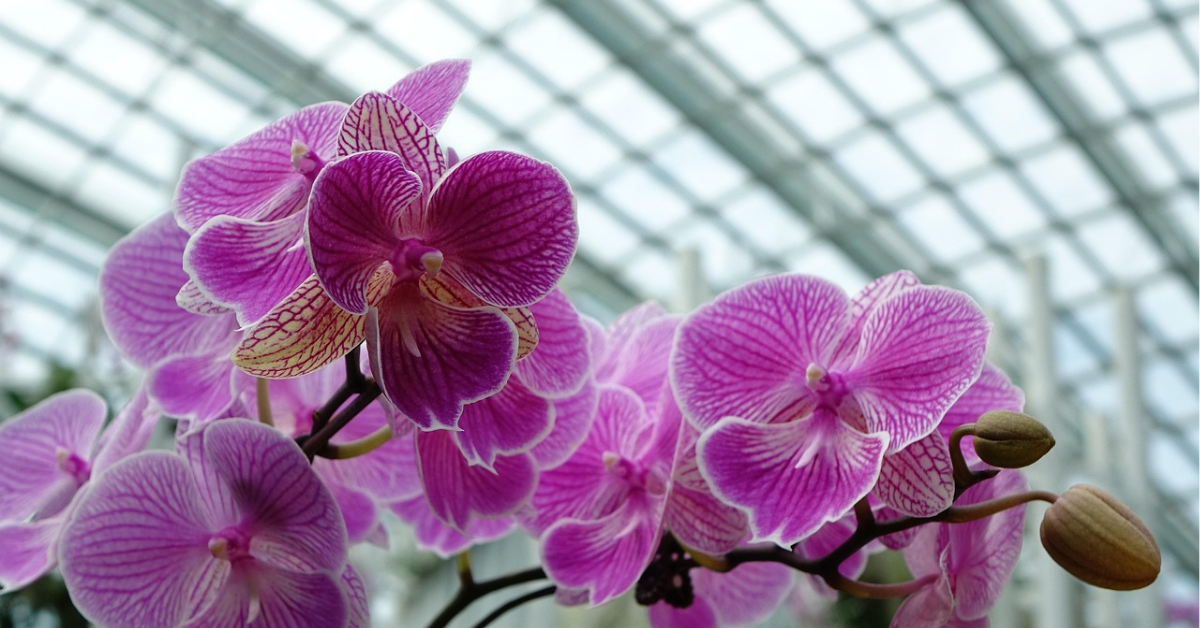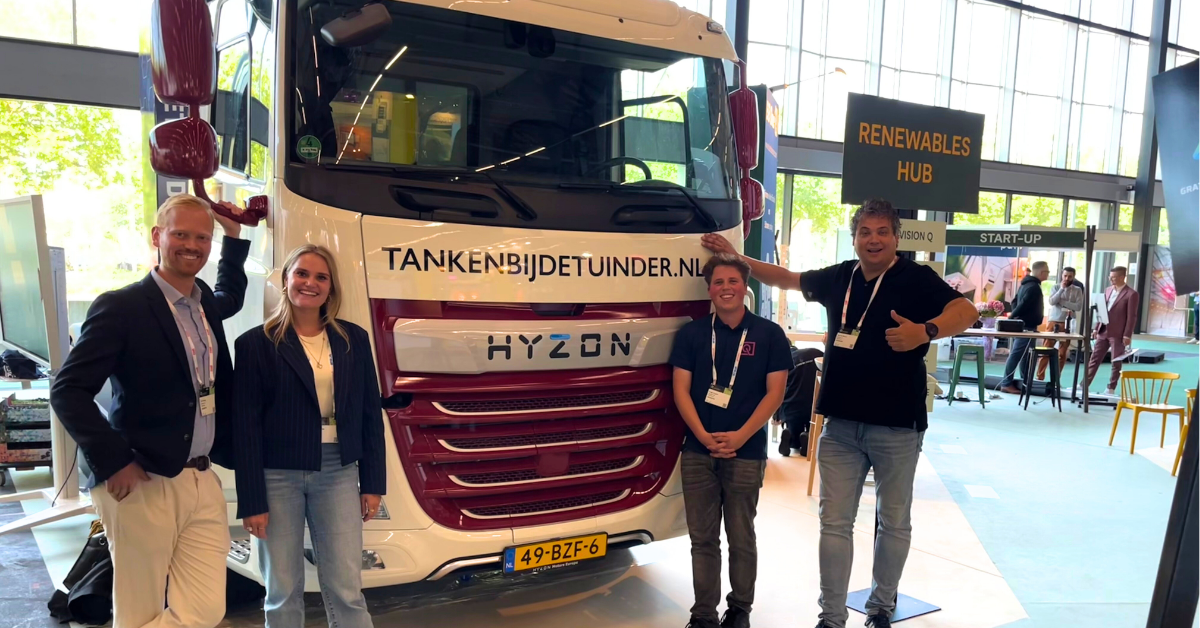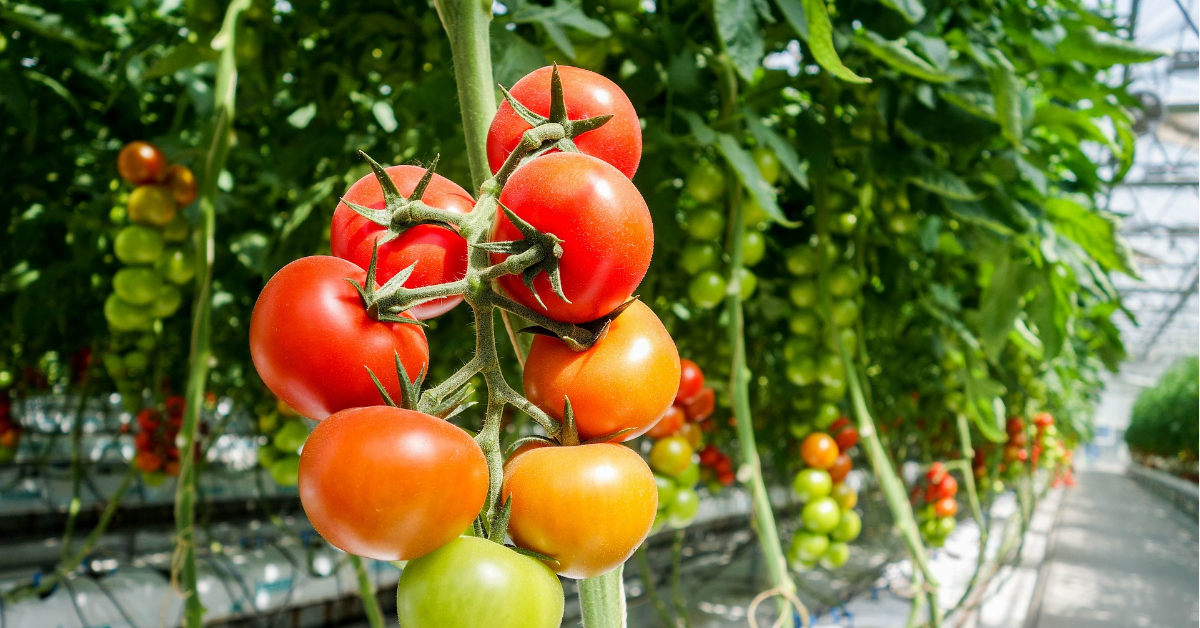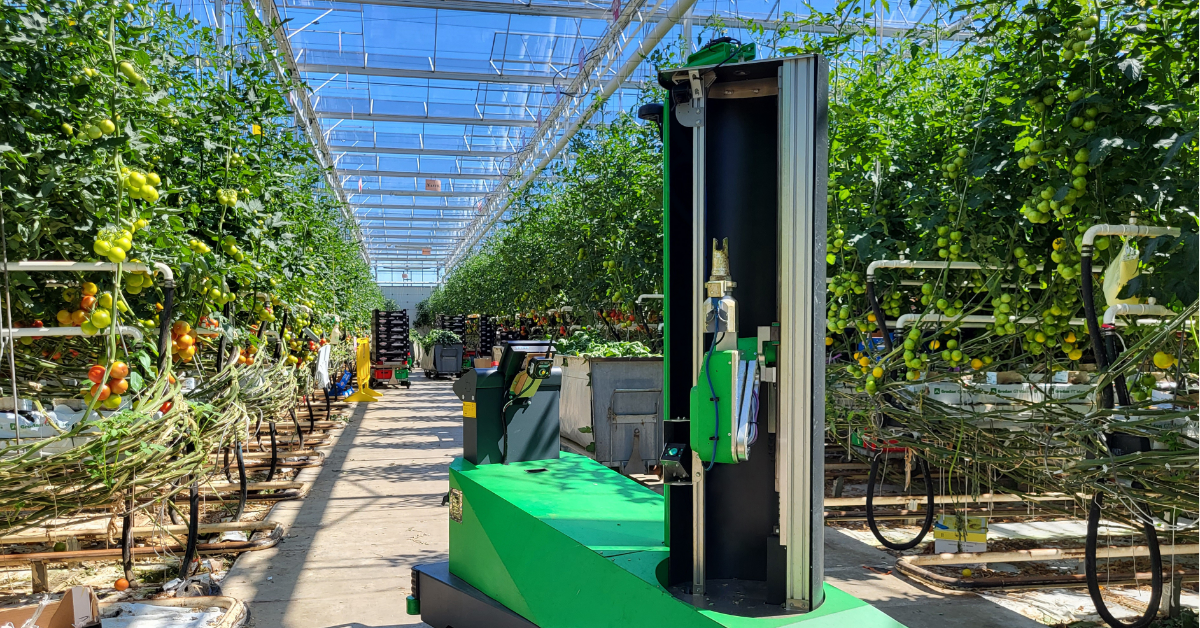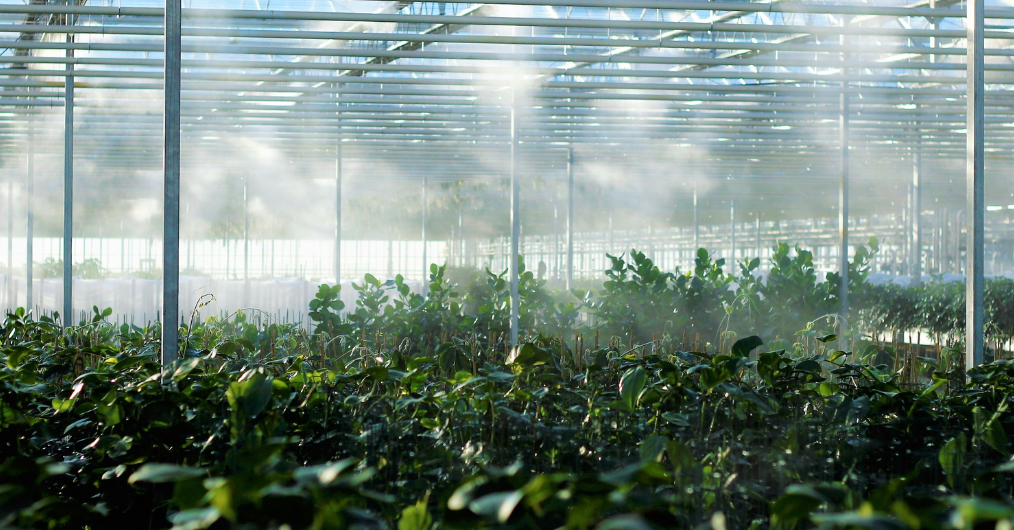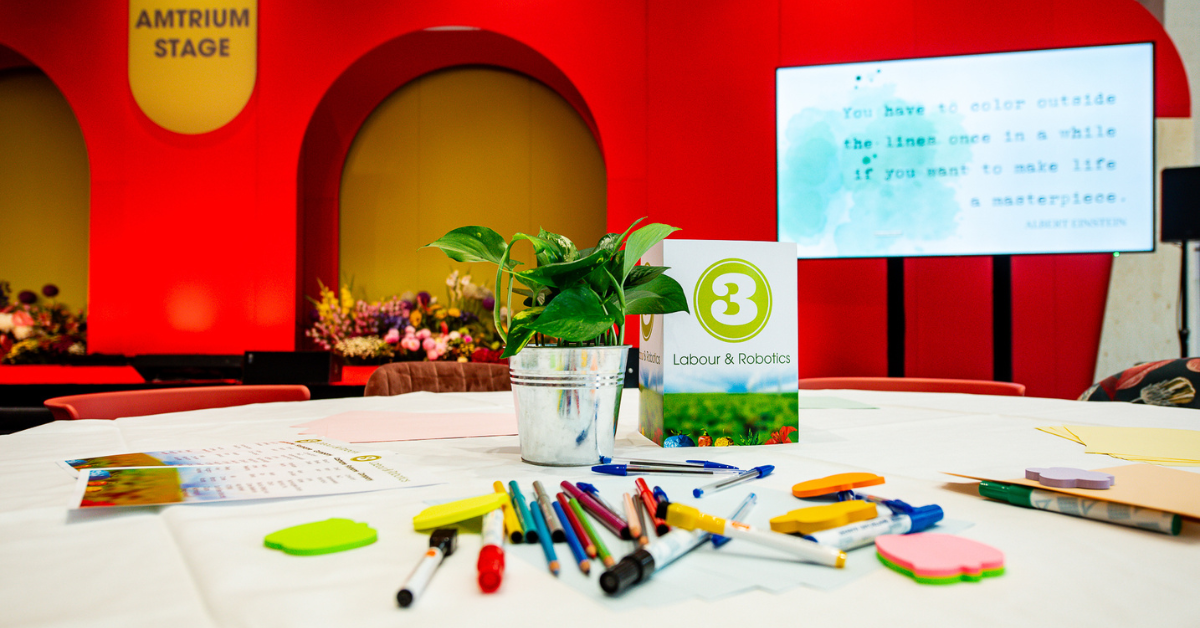What do agriculture and horticulture learn from each other?
 Author: Jacco Strating
Author: Jacco StratingAgriculture and horticulture are two different sectors, each with its own character. Yet both industries also have similarities. Agricultural and horticultural entrepreneurs have learned a lot from each other in recent years. Wouter van Vliet from growth specialist Van Iperen and Mark Durno from Rockstart explain what the biggest learning points were so far and what role innovation plays in both sectors.
Van Iperen has been active in the agricultural sector for a hundred years. The company was founded in 1921 and therefore knows the industry like no other. Today, Van Iperen is active in livestock farming, fruit cultivation, flower bulbs growth and landscaping. In the eighties, the company also started activities in horticulture and became a specialist in crop protection and fertilizers. Due to the increase in scale within both horticulture and agriculture, the company grew rapidly. “Growers and farmers differ a lot in character,” says Wouter van Vliet, Sector Manager Horticulture and Agriculture at Van Iperen. “Greenhouse growers often look at things more business wise and delegate many tasks on their company, while farmers often carry out the day-to-day activities themselves. As a result, growers tend to look at the bigger picture, while farmers are more practical.”
Biological crop protection
Van Vliet indicates that both sectors have had to deal with stricter laws and regulations in recent years. “Horticulture, in particular, has always been able to provide a good answer to this, due to its innovative character. That’s why the sector has always been ahead of current events. We see that this has inspired entrepreneurs in agriculture to face the challenges in their profession also with more creativity and innovation.” According to Van Vliet, a bottleneck that both sectors are explicitly dealing with is working in a more sustainable way. “The range of pesticides is becoming increasingly limited in both agriculture and horticulture. This means that you have to look for alternative methods to protect the crop. Horticulture has a closed environment, and the use of biological crop protection has become increasingly common in recent years. This is also happening in agriculture. For example, we have set up a project together with Koppert Biological Systems in which we release beneficial insects in field crops by using drones.”
Using adjuvants
Also, agriculture is very interested in adjuvants, as used in horticulture. “Because fewer types of crop protection are available, we have to ensure that we use the resources we have as efficiently and effectively as possible. Adjuvants, such as wetting agents and adhesives, can play a role in optimizing the use of biological crop protection. Besides that, the use of bio stimulants to make plants more resilient is also becoming increasingly important. Adjuvants and bio stimulants are already used in horticulture, but they will be used in agriculture in the coming years too.” The same goes for the application of nutrients in irrigation, Van Vliet says. “Inspired by horticulture, we see an enormous increase of drip irrigation in agriculture, adding horticultural nutrients to the water.”
Van Vliet points out that it’s not only agriculture learning from horticulture, but also the other way around. “We have been working in agriculture for several years now with spraying techniques, drift-reducing techniques, cultivation-free zones, water quality, etc. These efforts are also aimed at using the available resources more effectively and keeping the current range of products as long as possible by complying with legal requirements. Because Van Iperen is active in both industries, we can use the knowledge from agriculture to provide the best possible technical advice to our horticultural customers. So, you see that both sectors can learn from each other and can reinforce each other."
Empowering the best startups
Mark Durno is Managing Partner AgriFood at Rockstart. The company was launched in 2011 in Amsterdam as one of Europe’s first startup accelerators. Rockstart is a domain-focused accelerator-VC with follow-on growth funding that supports and empowers the best startups on their way to success across four domains: Energy, Health, AgriFood, and Emerging technologies. “We empower early-stage startups going from early market validation to becoming market-leading companies, starting with our customized accelerator program and continuing with our co-investments. Rockstart AgriFood is interested in solutions from soil to gut, and we invest widely across segments. This year we are especially interested in innovations that fall within the following categories: software to enable automation, robotics and controlled environment agriculture (also indoor farming), sustainable packaging, alternative proteins, solutions for regenerative agriculture and smart logistics.”
Durno agrees with Van Vliet that there are many similarities between horticulture and agriculture. “What agriculture and horticulture have in common is their innovative driver to produce more (yield) for less (cost). Some might argue that horticulture has greater precision and more technology application for climatic control. However, with ever more sophisticated satellite imagery and more effective means of ground truth data acquisition, and combined with a greater desire from the consumer to know their food’s journey, open field agriculture’s relationship to precision technologies is developing fast.” There is a great deal of crossover between the two industries, says Durno. “For example, applying vision tech and pest/disease/counting recognition technologies between the greenhouse and row crops. Automation is also an interesting space, with robotics being applied with varying success in both horticulture and open field. I think the main thing that agriculture can learn from the horticulture industry is how best to prepare for the use of data for production optimization.”
Vision recognition technology
Durno names Nordetect as an example of a company that started in agriculture, but eventually started in horticulture as well. “Nordetect is a Danish company that started by providing on the spot chemical testing for soil. Although their NPK tests are comparable to chemical tests in the lab, agronomists with an open field specialism have not been so quick to adopt the technology. Therefore, Nordetect made a shift in its focus towards horticulture and indoor growing in 2020; these growers see the benefit of real-time nutrient analysis since it can greatly improve nutrient dosing and better anticipate plant and fruit health. An example of a company going the opposite direction is MyCrops, an Israeli vision tech company. They are one of the leaders for vision recognition technology for greenhouses and are now applying their technology to outdoor vine crops. The algorithm can also be applied to trees and, eventually, row crops.”
In recent years, there is much more interest from consumers about where their food comes from and how it is produced, therefore traceability is a big theme for startups in horticulture and agriculture, Durno says. “Furthermore, with ever-mounting climate pressure, startups are coming up with solutions to monitor and offset harmful gases like CO2 and methane. Check out CarbonSpace for monitoring CO2 and Vultus for tracking Nitrogen; both startups apply satellite imagery with ground truth data in smart algorithms.”
Trading carbon credits
Besides the themes Durno already mentioned, the trading of carbon credits will be a big theme in the years to come, he believes. “Currently, farmers, growers and cooperatives are not utilizing the commercial and climate opportunity of carbon credits in full. However, the space is controversial since some commentators point out that the trading of carbon credits and carbon “best practices” can over-simplify the challenge of carbon reduction and sequestration.”
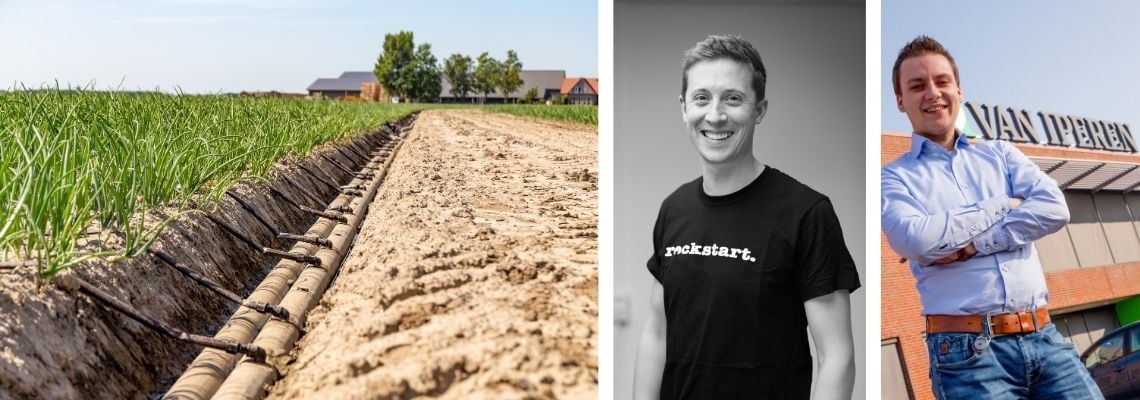
.png?h=628&iar=0&w=1200)
